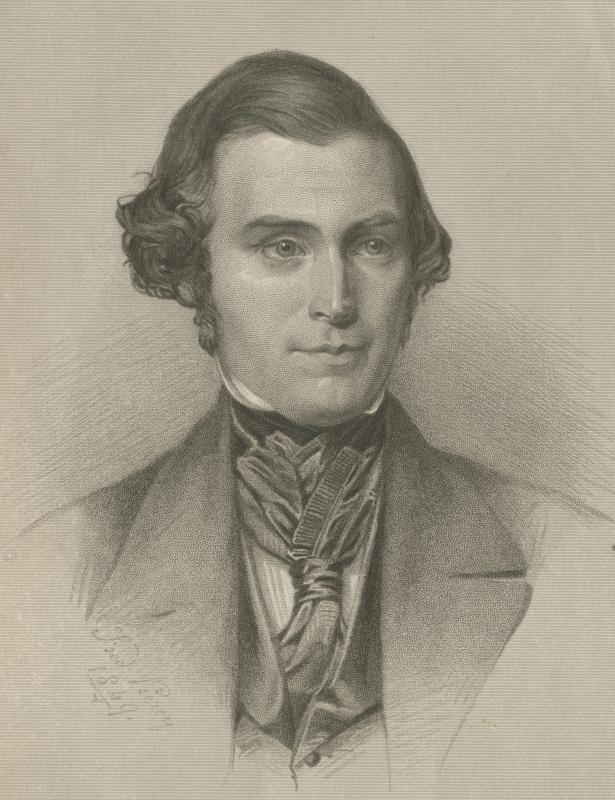6.2 a-c Delegates to the 1856 Utah Constitutional Convention debate whether Utah will apply as a slave or free state. Orson Pratt delivers an anti-slavery speech, March 22, 1856
Delegates to the 1856 Utah Constitutional Convention debate whether Utah will apply as a slave or free state
Documents Introduction
The 1856 Utah Constitutional Convention again raised the question of African American slavery in the territory and demonstrated the fact that at least some of Utah’s enslavers desired protections to preserve their slaves as property. Seth M. Blair proposed an amendment designed to do just that. “The people of this State do adopt and will regulate African Slavery as they in their wisdom may deem proper,” Blair suggested.[1] His proposition extended the convention’s ongoing debate over slavery and prompted a passionate response from delegate and Latter-day Saint apostle Orson Pratt (document 6a). Pratt returned to many of his key points from 1852, but this time he drew on a revelation Joseph Smith claimed to receive in December 1833 which stipulated that “it is not right that any many should be in bondage one to another (Doctrine and Covenants 101:79). Pratt conceded that God may have approved slavery in ancient times, but stipulated that God rejected it in the present day; he used Smith’s revelation as his evidence. He told the convention that the majority of their constituents, the people that they were sent to represent, believed in Smith’s revelation. Pratt predicted that if the convention adopted Blair’s amendment the people of Utah “would not accept the constitution.”
Pratt also undermined racial curses and any attempt to link Black people to the biblical curse of Cain. “We have no proof that the Africans are the descendants of old Cain” he declared. He did not mention the racial priesthood restriction explicitly but his rejection of a link between people of African descent and Cain was nonetheless a rejection of the only rationale Brigham Young ever used for the restriction. “I tell you, this people that are commonly called Negroes are [the] children of Cain. I know they are,” Young had insisted in 1852. Pratt adamantly disagreed. It is not clear that the two men ever saw eye to eye on the restriction even though they both gave life to its two key justifications, the curse of Cain for Young and “evil” choices in the pre-mortal realm for Pratt.
On the question of slavery, the convention eventually put it to vote. Delegates resoundingly defeated the proposed amendment, 26 to 5. It was a roll call vote in which the clerk preserved the names of delegates and their votes, likely because emotions ran high throughout the debate and on some earlier decisions delegates asked for their names to be recorded. In any case, the clerk dutifully recorded the delegates names and their votes, a list we replicate here as document 6b. George A. Smith was the only Latter-day Saint apostle present to vote in favor of the slavery amendment. His name was originally recorded in the “nay” column but then crossed out and listed among the “yea” votes. It is possible that he changed his vote or it may have simply been recorded incorrectly and then corrected. Either way, it is clear that Smith voted in favor of slavery, a fact for which Brigham Young held him accountable in a subsequent meeting. Young was not a delegate at the convention but must have learned of Smith’s vote. The following day, at a small leadership council meeting, Young made it clear that if Smith supported an application for statehood as a slave state, Young would not send him to Washington D.C. with the constitution (document 6c). When Smith later arrived at that meeting, Young confronted him and made his position clear, “[I] don’t want one word about it [in the] Constitution,” Young said, referring to slavery. He called it a “curse [to] any community” and was adamant that Utah’s application for statehood not include slavery.
[1] Minutes of Utah Constitutional Convention, Council House, March 21-27, 1856, MS 2988, Church History Library, Church of Jesus Christ of Latter-day Saints, Salt Lake City, Utah.


